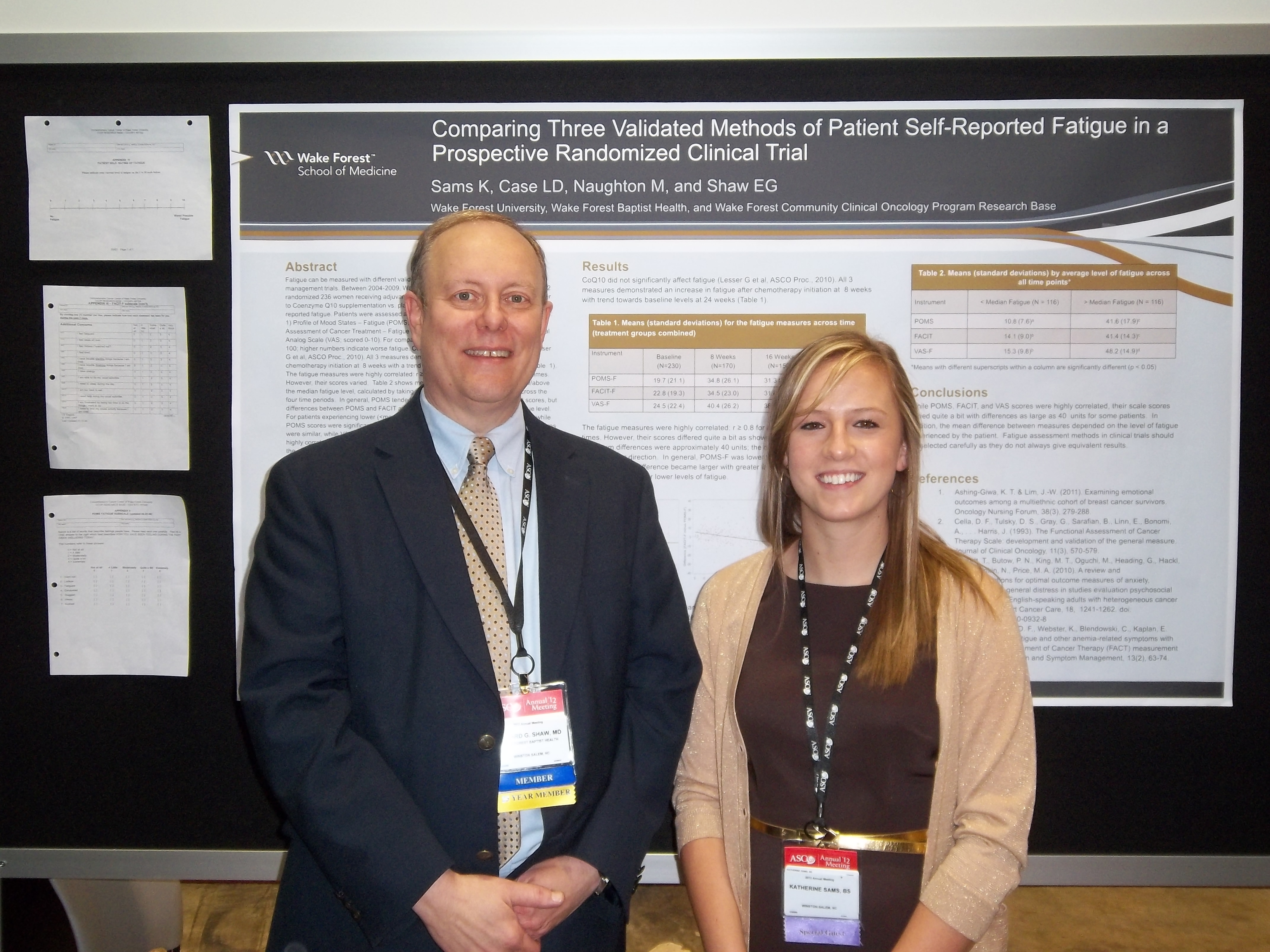
When Wake Forest junior Katherine Sams received an invitation to share her research on fatigue in breast cancer patients at the largest gathering of cancer professionals in the world, it was addressed to Dr. Sams.
Sams hasn’t earned a medical degree, but the mistake reflects the high-caliber work she has done with Dr. Edward Shaw, professor of counseling at Wake Forest and professor of radiation oncology at the Wake Forest School of Medicine.
Presenting to the American Society of Clinical Oncology (ASCO) and rubbing elbows with representatives from many of the most prominent medical institutions and health care companies is an unusual opportunity for an undergraduate student.
Sams, a psychology major, was selected from among thousands of applicants to present a poster of her research on June 2.
“Attending ASCO was such a surreal experience, and I was so excited and nervous,” Sams said. “But overall it has been such a great learning process, because I now know what sort of credentials I’ll need as a graduate and I won’t be as intimidated when interacting with other professionals within the field.”
Shaw and Sams met during his first-year seminar called “Contemporary Issues in Medicine and Mental Health.” Throughout the course, Sams’ professional goals and interests caught his attention.
“Not very many college freshmen say that they want to go into neuropsychology, but Katherine had a very specific interest,” Shaw said. “She was a great student, very engaged and an active participant in class. She also had an interest in bio-statistics, so when the opportunity arose, she was very eager to join a project where she could put those interests to use.”
Shaw conducts cancer research in the area of symptom management. In a previous study completed by his grant team with the Wake Forest School of Medicine, researchers explored treatment for the most common symptoms of cancer treatment in patients with breast cancer, fatigue.
Sams, with the mentorship of Shaw and several of his medical center colleagues, used sophisticated biostatistical techniques to compare three different methods researchers used to measure fatigue. She learned about clinical trials and Coenzyme Q10, which women in the study received to combat their chemotherapy induced fatigue.
In the next phase of her research, Sams will be completing a manuscript and submitting her work to an academic journal. If accepted, she will be named first author of the project, which is a great achievement for an undergraduate student.
“Wake Forest cultures an environment where students really get the most out of working with their professors and forming strong academic relationships,” Sams said. “These relationships can help students feel more secure about their classes and provide a great stepping stone for future opportunities.”
Categories: 2012 Highlights: Mentoring, Faculty, For Alumni, For Parents, Mentoring, Research, Student, Top Stories, Wake Forest College
Headlines
Wake Forest in the News
Wake Forest regularly appears in media outlets around the world.




